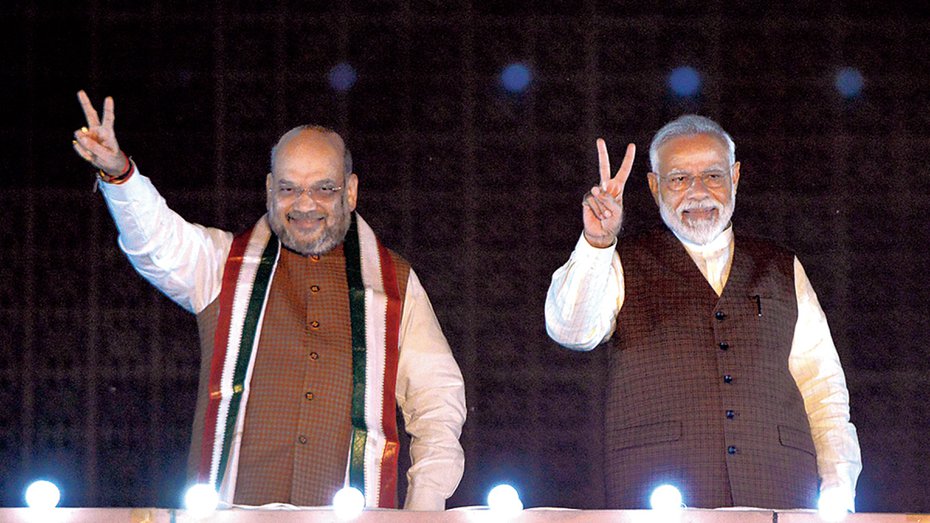One summer afternoon, while jostling through the crowd of vendors at the Grand Hotel arcade, my attention was drawn to a book in a store I used to visit before the purchase of books online came into vogue. Against Elections: The Case for Democracy, authored by the Belgian cultural historian, David Van Reybrouck, was of immediate interest to me, as, I soon realized after taking a look at the back cover, it was for millions of other readers. The reason is not difficult to comprehend: it addresses a malice common to contemporary democracies, be they in the West or in the East — namely, the lack of trust in elections as an effective vehicle for change.
Across all classes in the democratic world, the common lament is the disconnect between the leader and the people, the representative and the represented. To add to it, in India, contesting elections has become a vicious economy, an investment for amassing far greater sums of money once returned to power. No wonder political parties across the spectrum make their biddings on the promise of providing ‘clean administration’, which remains ever elusive. Elections, over the years, have become a variety show of empty promises.
In a recent discussion, when asked to identify the possible sources of the crisis of representative democracy, the philosopher, Charles Taylor, pointed to the deep divisions that are appearing in democratic societies, divisions such as differences of ethnic background or origin, differences of religions and so on. Can, or should, Indian democracy ignore the “terrible cleavages” that Taylor talks about — questions of class, caste, religion, sub-nationalism and other identities that people invariably carry into politics, each of which has long, imbricated histories? These present insurmountable difficulties to the prospect of a properly functioning, deliberative democracy. The rot of democratic structure had become visible during Indira Gandhi’s rule. She made all power converge on her, not giving a damn to procedural protocols. At the regional level, populism has long been the rule of the game. But things took a sharp turn in this direction at the Centre with the coming of the Modi sarkar in 2014.
The larger question to ask is this: has populism become a permanent fixture of Indian democracy? True, a lot can change with a change of leadership. Yet if one takes a structural view, unfortunately the hope of a trend-change seems very dim. Postcolonial states have given up any hope of including peripheral populations within the planned orbit of growth, resulting in the creation of what may be called ‘surplus humanity’ — people who are superfluous for both market and labour. This is not what Karl Marx identified as the reserve army of capital: that is the floating crowd of semi-employed or non-employed of 19th century England who could be employed or thrown out as and when necessary but whose presence kept the wage-level of the working class down. The floating crowd of the jobless in postcolonial neoliberalism is a different phenomenon. They are simply surplus, made redundant owing to rising levels of productivity and value-added production. This is the population that largely constitutes the cadre strength of big political parties and which needs to be kept pacified. No wonder violence is the primary language of politics today. If the cadre are utilized by the ruling party to terrorize opponents, they also indulge in rampage on their own ignoring the party leadership. The government invests most of its energy in expediency management to keep a restive populace pacified, for instance, allowing vendors to occupy large parts of pavements to sell their wares in spite of the inconvenience it might cause to the passers-by. Such contingency management has, at times, been wrongly identified as governmentality, which it is not. Governmentality is the strategic, calculated and contingent intervention for creating a governable subjectivity or conduct. In India, no party is into changing the conducts of its own cadre, leave alone the populace.
Calling India an ‘illiberal democracy’, the anthropologist, Thomas Hansen, has analyzed how “vernacular publics” promote a popular politics of bitter disappointment, passion and fury, making violence “the general equivalent of India’s multiple publics”. In his Welleck lectures, “Politics of the governed”, Partha Chatterjee calls the vast marginalized sections of the population, who are only de facto citizens, political society. His initial explication of the concept pointed to a constitutive moral element in the making of political society. This becomes evident in the first of the five examples he gives, namely, the underdogs of Calcutta’s lake slums who, under the leadership of an idealist school teacher, negotiated with municipal authorities on fuzzy legal terms for certain civic concessions. In turn, the inhabitants tried to develop the profile of proper, dutiful citizens. The question of ethics, however, did not occur in the other four examples he gave. In his recent discussion of the concept in I am the People: Reflections on Popular Sovereignty, the moral element has been virtually dropped, indicating a genuine impasse in contemporary political theory to frame an appropriate ethical-political future of what may be called plebeian democracy. Meanwhile, the traditional bedrock of subaltern honesty and indigenous civility are being replaced by vulgarity and quotidian violence with every passing day.










